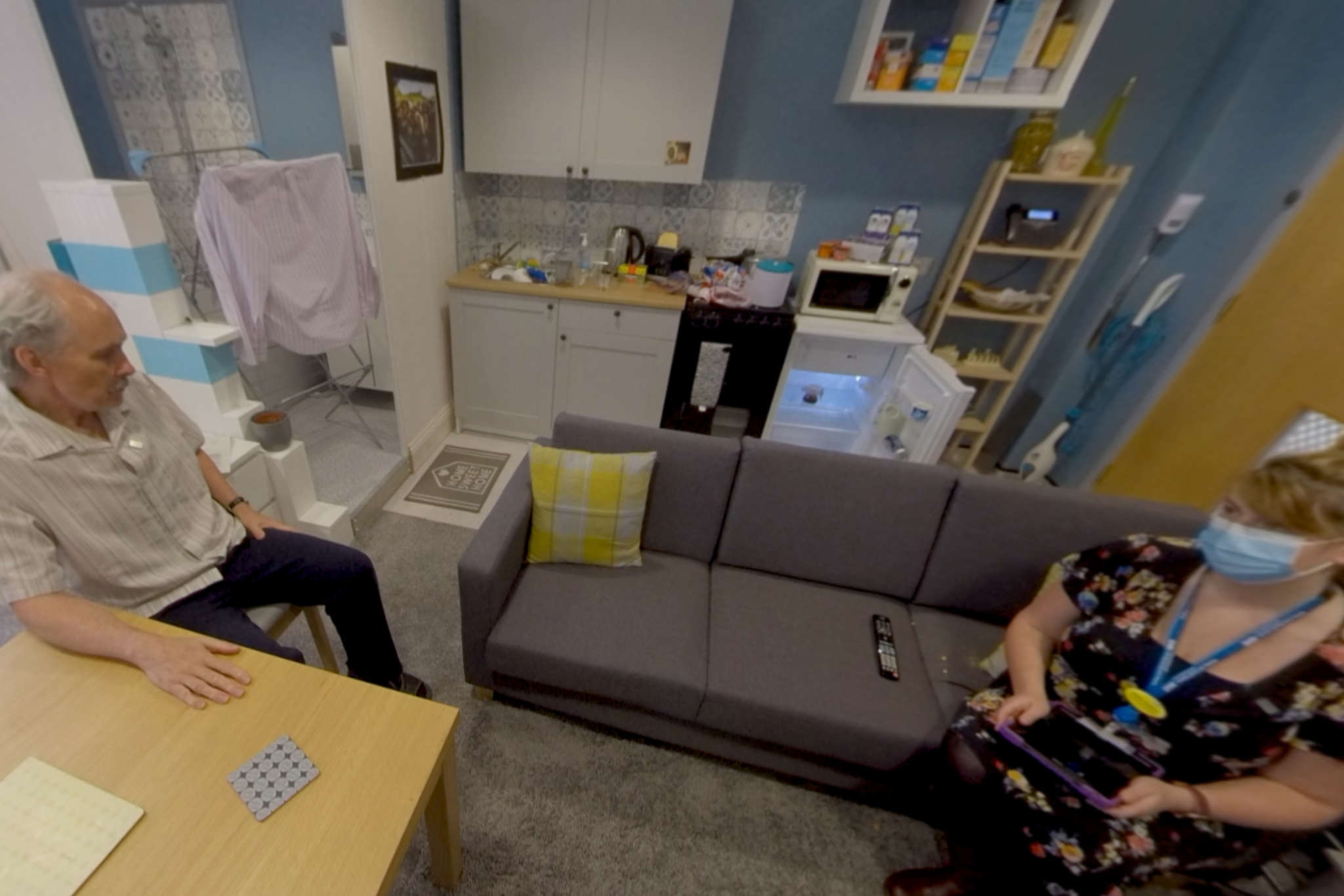
Community Visit
DieteticsUse this resource in conjunction with your real-world training

Experience Summary
In this 360-degree video, observe a dietitian reviewing a patient in the community. Reflect on the interaction with the patient.
Clinical Context
A dietetic assessment in the community setting plays a vital role in the prevention and management of nutrition-related health conditions outside the hospital environment. Community dietitians work across a range of settings including patients' homes, GP practices, care homes, and community health clinics. Their goal is to support individuals in managing long-term conditions, promoting recovery, and improving quality of life through personalized nutrition care.
Patients are often referred for a community dietetic assessment by GPs, nurses, or other healthcare professionals for a variety of reasons. Common referrals include unintentional weight loss, malnutrition risk, poor oral intake, swallowing difficulties, or nutrition support needs. Chronic conditions such as diabetes, heart failure, chronic obstructive pulmonary disease (COPD), dementia, cancer, and gastrointestinal disorders (e.g., IBS, coeliac disease) are also frequent indications for dietetic involvement. In addition, community dietitians may support individuals receiving enteral tube feeding at home.
The clinical context is often complex, as patients in the community may face multiple barriers to adequate nutrition—including social isolation, reduced mobility, low income, cognitive decline, or difficulties accessing food or cooking facilities. A dietetic assessment must therefore take a holistic approach, incorporating medical, psychological, and social factors alongside dietary intake.
During the assessment, the dietitian collects detailed information on:
- Basic health data: including weight history, BMI, and recent changes in body composition.
- Dietary intake: including current food and fluid consumption, meal patterns, appetite, dietary restrictions, and preferences.
- Medical background: diagnosis, symptoms (e.g., nausea, constipation), medications, and relevant blood results.
- Functional ability: including ability to shop, prepare food, chew/swallow, or feed independently.
- Psychosocial context: such as mental health, support networks, and living environment.
Based on this, the dietitian provides tailored nutrition advice, which may include food fortification, meal planning, oral nutritional supplements, or referral to social support services (e.g., meals on wheels). For patients on enteral nutrition, the dietitian ensures the feed regimen meets nutritional needs, is well-tolerated, and is monitored regularly.
Importantly, community dietitians work closely with multidisciplinary teams, including district nurses, speech and language therapists, and social workers, to ensure integrated care that supports independence and health in the community.
Learning Outcomes
- Observe community dietician interactions with patients.
- Understand the communication issues that may be faced by patients with need for dietetic input.
- Reflect on the consultations in the video.
